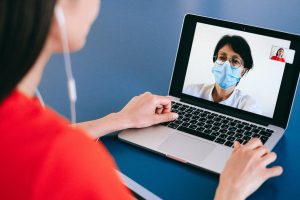What You Can Do Now To Prepare For A Potential Covid-19 Infection
There is a high likelihood that you or someone you care about will be diagnosed with covid-19 in the near future and what is helpful to have on standby just in case.
9 key recommendations to prepare for covid infection
-
- Electrolytes – such as hydrolite as high fevers often make you dehydrated, a week worth for everyone who lives with you.
-
- Over the counter pain relief medications such as paracetamol or ibuprofen for pain and temperature – you want enough for all family members to last you at least 7 days.
-
- A thermometer
-
- Pulse Oximeter – this is the small device they pop on your finger at a hospital / doctor / ambulance that measures your oxygen saturation. You can get them at the chemist for around $70. We will explain what to do an when with this further down.
-
- A list of contact numbers for people you know would be willing and able to help you if needed in an emergency / need food delivered etc. Agree to have someone who will check on you at least 1-2x per day if you become ill, via sms or phone and you can do the same for them.
-
- Get a rapid antigen test on standby (if you can)
-
- A minimum of 1 weeks prescription medication / supplements if there is anything you take on a regular basis
-
- Do the things that keep you healthy, get sunlight (but not burnt) to boost your vitamin D levels (good for your immune system), enough sleep, drink plenty of fluids, eat a well rounded diet with the colours of the rainbow, do the things that help manage your stress levels, sanitise and wear a mask.
-
- Ensure your ambulance cover is up to date.
WHAT TO EXPECT / DO IF YOU’RE A CLOSE CONTACT / HAVE ANY COVID SYMPTOMS / TEST POSITIVE FOR COVID-19

1. Assume you have covid until proven otherwise if you have a close contact exposure (someone you live with or spent 4 hours with indoors tests positive), regardless of if you have symptoms or not.
2. Self Isolate immediately – don’t go shopping for a rapid antigen test, get someone to bring one to you if at all possible. Remain separated from other members of your household, in a well ventilated room, avoid any shared spaces, sleep alone and use a separate bathroom if possible. Get them to deliver food / drinks / medication to outside your door and do not open until they have left / not in the corridor etc. Do not share utensils or other household items. Keep your environment as clean, wiping down any surfaces that you touch and ventilate as much as possible. Do not go out in public unless it is to get medical assistance in an emergency or you are directed to do so by health authorities in exceptional circumstances.
3 . REPORT YOUR POSITIVE RAPID ANTIGEN TEST RESULT – CLICK HERE
4. Or go to a testing centre if you can not get an RAT.
5. Notify any close contacts – especially people you live with or have spent 4 hours in a house like setting. Then notify any casual contacts, people you were in contact with, even if less than 4 hours who you spent time with in the last 48 hours of testing positive. If you were symptomatic but not able to get a test immediately, you will need to backdate to 2 days prior to symptoms developing.
6. Contact your agreed contact person who will check in on you regularly, even if they can’t see you (as per above).
7. Most people can manage their illness at home, while a relatively small number of people (approximately 3%) will need to go to hospital.
8. Contact your GP if you are pregnant or have any chronic health conditions – such as diabetes, asthma, obesity, cancer etc. and have a telehealth appointment.
9. If you develop severe symptoms, such as significant shortness of breath, sudden worsening of breathing, dizziness, chest pain, losing consciousness, developing blue lips, fingers, toes, or the inside of your mouth, cold / clammy or mottled skin, severe headache, unable to get out of bed / look after yourself, confusion (can’t remember people’s names / what day it is), find it difficult to keep your eyes open, no urination, you need to get urgent medical attention, call 000.
10. If you are worried about your symptoms, but not as serious as above, call Nurse On Call 1300 60 60 24 or contact your GP and have a telehealth appointment. This would include symptoms such as; mild shortness of breath or becoming breathless when walking around (but still able to speak full sentences), coughing up mucous regularly, severe aches and pains (but able to move around the house and get out of bed), reduced urination (still producing some urine, but noticeably less than usual), vomiting / diarrhoea, shivers and shakes, temperature above 38 degrees. Or if your symptoms are getting worse and you are worried, don’t hesitate to contact a health professional. If you are unable to take care of yourself and need assistance, such as unable to shower, put your clothes on etc. is also a reason for speaking to someone for help.
11. Do not take public transport, a taxi / uber to hospital. Take either a private car, walk or ambulance if it is an emergency. If someone is driving you, all people in the vehicle should wear a face mask at all times.
12. Notify staff at a medical facility immediately that you are covid positive.
13. If you have a pulse oximeter, take a reading every 2 hours if practical. If your oxygen saturation is 95%, please call nurse on call, even if you feel okay. If your oxygen level drops to 92%, it is likely that you may be advised to go to the emergency department, while 88% is very serious and you are in danger of not having enough oxygen in your body – call 000 or nurse on call for immediate assistance.
14. More information can be found here
15. If you are concerned for your mental health, speak to your GP, psychologist, or a helpline such as lifeline or beyond blue

Once you have isolated for 7 days, you are able to return to the community. Please note, if you continue to have symptoms, we would recommend remaining in isolation until speaking to your doctor or the Department of Health.
Following a covid infection, some people experience lingering symptoms and may benefit from a rehabilitation based graduated exercise program, breathing exercises or other support. If you have any questions or would like to speak to one of our team, please don’t hesitate to reach out.
We wish you well during these challenging times and we will be in touch with any significant updates.

